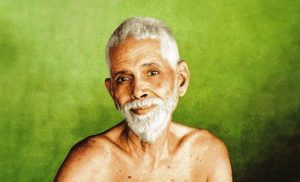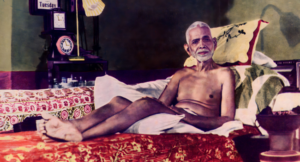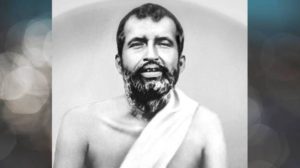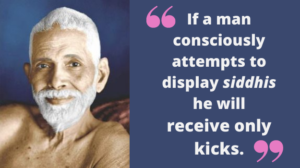The following talk was delivered by Swami Vivekananda at India’s famous and most ancient Rameswaram Temple which is dedicated to Lord Shiva. This talk was given in the year 1897, when Swami Vivekananda had just returned back to India, after introducing Vedanta to the West. To the enclosed talk of Swamiji’s, paragraph headings have been added, so as to emphasise various key points.
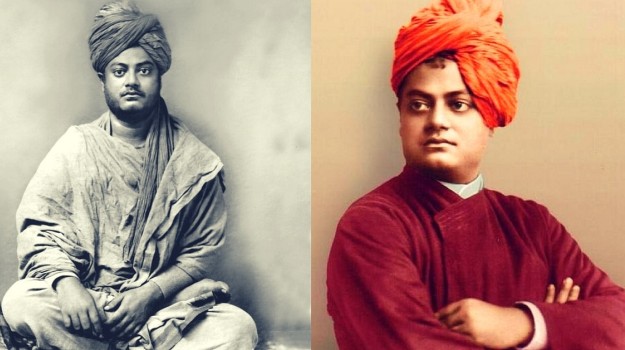
So, when a man prays to God, “Give me this, and give me that”, it is not love. How can it be? I offer you a prayer, and you give me something in return; it is mere shopkeeping (business).”
– Swami Vivekananda
Mere External Worship of God in Temples is NOT Religion
It is in love that religion exists and not in ceremony, in the pure and sincere love in the heart.
Unless a man is pure in body and mind, his coming into a temple and worshipping Shiva is useless. The prayers of those that are pure in mind and body will be answered by Shiva, and those that are impure and yet try to teach religion to others will fail in the end.
People are Deluded That By Visiting Holy Places Their Sins Will Be Forgiven
External worship is only a symbol of internal worship; but internal worship and purity are the real things. Without them, external worship would be of no avail. Therefore you must all try to remember this.
People have become so degraded in this Kali Yuga that they think they can do anything, and then they can go to a holy place, and their sins will be forgiven. If a man goes with an impure mind into a temple, he adds to the sins that he had already, and goes home a worse man than when he left it.
Tirtha’s Have Significance Only When Holy People, i.e. the Pure in Heart, Gather There
Tirtha (place of pilgrimage) is a place which is full of holy things and holy men. But if holy people live in a certain place, and if there is no temple there, even that is a Tirtha. If unholy people live in a place where there may be a hundred temples, the Tirtha has vanished from that place.
And it is most difficult to live in a Tirtha; for if sin is committed in any ordinary place it can easily be removed, but sin committed in a Tirtha cannot be removed.
This is the gist of all worship — to be pure and to do good to others. He who sees Shiva in the poor, in the weak, and in the diseased, really worships Shiva; and if he sees Shiva only in the image, his worship is but preliminary. He who has served and helped one poor man seeing Shiva in him, without thinking of his caste, or creed, or race, or anything, with him Shiva is more pleased than with the man who sees Him only in temples.
God is Not Impressed by Flattery and the Singing of His Praise
“It is not that you do not get what you pray for; you get everything, but it is low, vulgar, a beggar’s religion. These prayers for health and wealth and material prosperity are not Bhakti (devotion). They are the lowest form of Karma. Bhakti is a higher thing.”
– Swami Vivekananda
A rich man had a garden and two gardeners. One of these gardeners was very lazy and did not work; but when the owner came to the garden, the lazy man would get up and fold his arms and say, “How beautiful is the face of my master”, and dance before him. The other gardener would not talk much, but would work hard, and produce all sorts of fruits and vegetables which he would carry on his head to his master who lived a long way off.
Of these two gardeners, which would be the more beloved of his master? Shiva is that master, and this world is His garden, and there are two sorts of gardeners here; the one who is lazy, hypocritical, and does nothing, only talking about Shiva’s beautiful eyes and nose and other features; and the other, who is taking care of Shiva’s children, all those that are poor and weak, all animals, and all His creation.
Which of these would be the more beloved of Shiva? Certainly he that serves His children. He who wants to serve the father must serve the children first. He who wants to serve Shiva must serve His children — must serve all creatures in this world first. It is said in the Shastra that those who serve the servants of God are His greatest servants. So you will bear this in mind.
Internal Purity is the Foundation of Religion
Let me tell you again that you must be pure and help any one who comes to you, as much as lies in your power. And this is good Karma. By the power of this, the heart becomes pure (Chitta-shuddhi), and then Shiva who is residing in every one will become manifest.
He is always in the heart of every one. If there is dirt and dust on a mirror, we cannot see our image. So ignorance and wickedness are the dirt and dust that are on the mirror of our hearts. Selfishness is the chief sin, thinking of ourselves first. He who thinks, “I will eat first, I will have more money than others, and I will possess everything”, he who thinks, “I will get to heaven before others I will get Mukti before others” is the selfish man.
The unselfish man says, “I will be last, I do not care to go to heaven, I will even go to hell if by doing so I can help my brothers.” This unselfishness is the test of religion. He who has more of this unselfishness is more spiritual and nearer to Shiva. Whether he is learned or ignorant, he is nearer to Shiva than anybody else, whether he knows it or not. And if a man is selfish, even though he has visited all the temples, seen all the places of pilgrimage, and painted himself like a leopard, he is still further off from Shiva.
“True Love of God, “knows no bargaining. Wherever there is any seeking for something in return, there can, be no real love; it becomes a mere matter of shop-keeping (a business transaction). As long as there is in us any idea of deriving this or that favour from God in return for our respect and allegiance to Him, so long there can be no true love growing in our hearts.
Those who worship God because they wish Him to bestow favours on them are sure not to worship Him if those favours are not forthcoming (hence they are really hidden atheists). The Bhakta (devotee) loves the Lord because He is lovable, there is no other motive originating or directing this divine emotion of the true devotee.
Let us therefore not become beggars, because, in the first place, beggary is a sign of atheism. “Foolish indeed is the man who living on the banks of the Ganga digs a little well to drink water.” So is the man who begs of God material objects. The Bhakta should be ready to stand up and say, “I do not want anything from you, Lord, but if you need anything from me I am ready to give.”
Let your position be always that of the giver; give your love unto God, but do not ask anything in return even from Him.”
– Swami Vivekananda
“The whole religion of the Hindu is centred in realisation. Man is to become divine by realising the divine. Idols or temples or churches or books are only the supports, the helps, of his spiritual childhood: but on and on he must progress. He must not stop anywhere. “External worship, material worship,” say the scriptures, “is the lowest stage; struggling to rise high, mental prayer is the next stage, but the highest stage is when the Lord has been realised.”
– Swami Vivekananda

